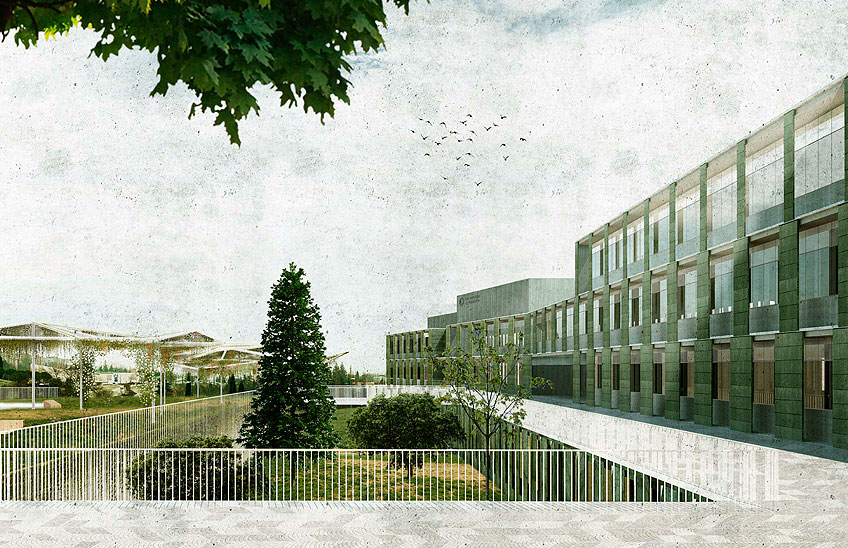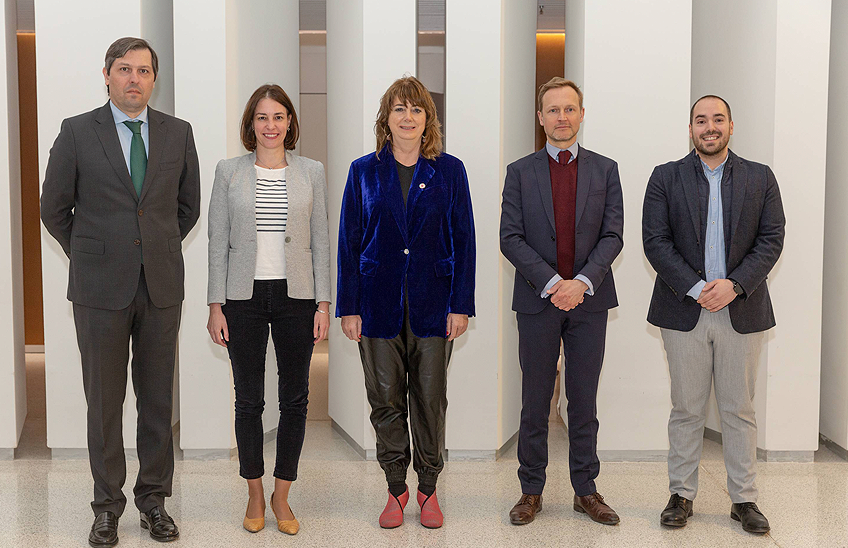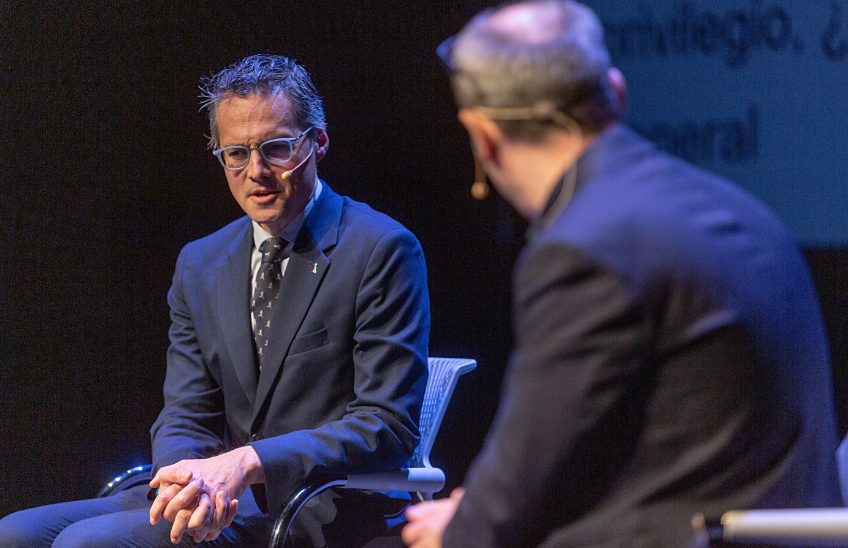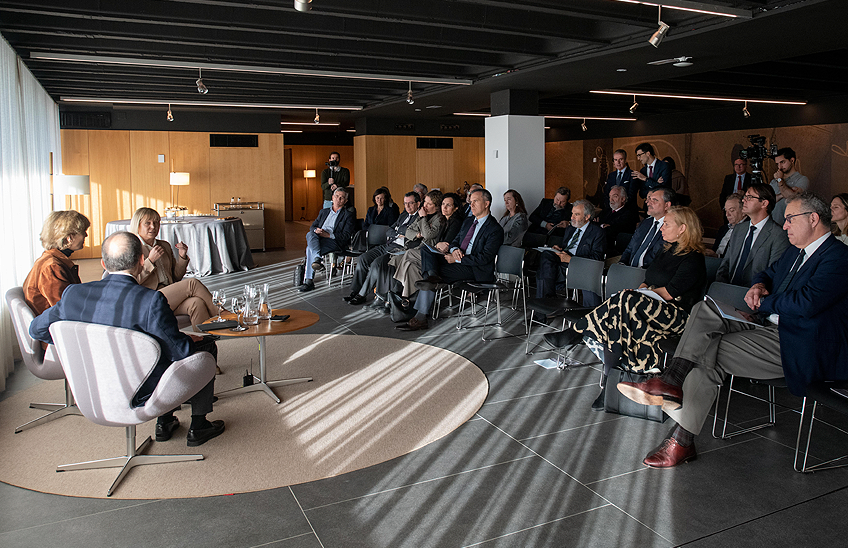Pamplona City Council and the University will collaborate to develop projects included in diary Urbana 2030
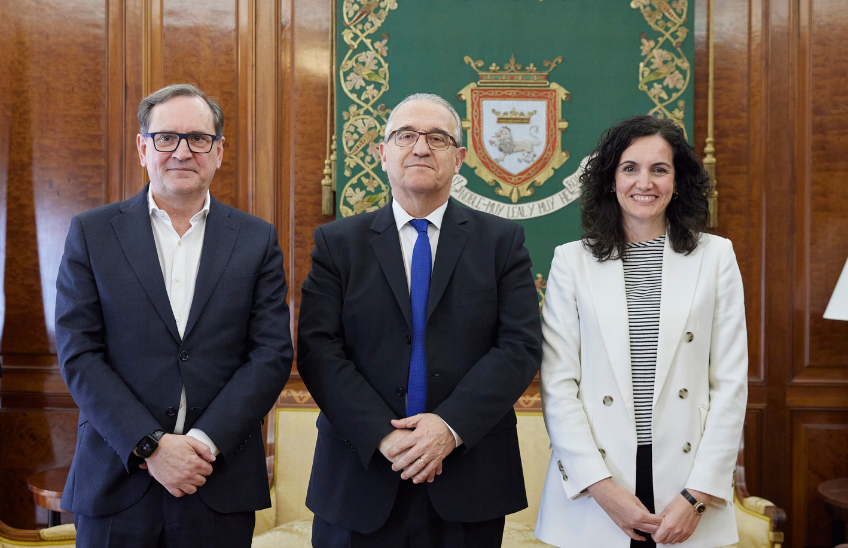
FotoManuelCastells/From left to right, the director of the School of Architecture, Carlos Naya; the Mayor of Pamplona, Enrique Maya; and the Vice President of research and Sustainability, Paloma Grau.
20 | 03 | 2023
The University of Navarra and the Pamplona City Council have signed an agreement partnership agreement to develop some of the 57 projects included in the diary Urbana del consistorio. The so-called diary Urbana Pamplona 2030 "seeks to advance in the development of a more sustainable, innovative and inclusive city model ".
The Mayor of Pamplona, Enrique Maya, the Councillor for General Services, María Echávarri, and the Vice President of research and Sustainability, Paloma Grau, participated in the signature of agreement . Also in attendance was the director of the School of Architecture, Carlos Naya.
The projects address five thematic areas: climate change and sustainability, social inclusion and balance between neighborhoods, innovative public management , culture and tourism, and Economics of knowledge and innovation. As established in the text of agreement, the projects proposed must be strategic in nature, viable in the 2030 horizon, and have a medium and long-term impact deadline. In addition, they must be based on consensus and favor the partnership of the different parties and sectors involved.
Through this agreement, the City Council of Pamplona undertakes to study the proposals of the University of Navarra and to facilitate the possibility of developing such projects or participating in them. In addition, it will carry out an analysis of the opportunities and the attraction of resources, both internal and external (public and private) for their execution.
The City Council may also propose, at its own initiative, the participation of the University of Navarra in a strategic project of the diary Pamplona 2030 Urban .
The University of Navarra, for its part, undertakes to present specific projects, with a description of the initiative, its execution deadline and the estimated budget , as well as the results expected to be achieved. Each of the parties will execute the activities of each project that correspond to them, according to the agreed distribution of tasks.
The agreement has a term of four years, which may be extended for a further four years. In addition, a monitoring committee will be created, which will meet at least every six months. Its function will be to specify and select the different projects. It will also be responsible for supervising and controlling the execution of the projects.

